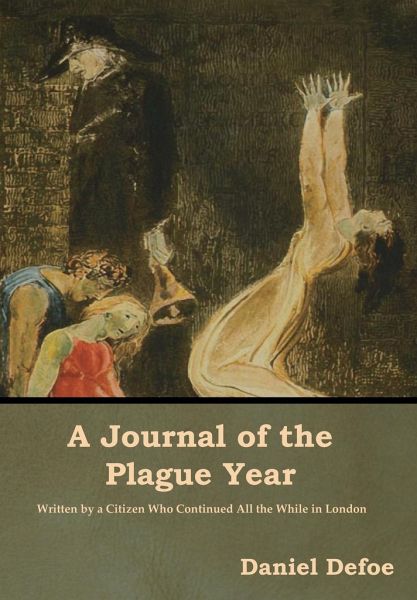
A Journal of the Plague Year
Versandkostenfrei!
Sofort lieferbar
27,99 €
inkl. MwSt.

PAYBACK Punkte
14 °P sammeln!
A Journal of the Plague Year is a novel by Daniel Defoe, first published in March 1722. The novel is a fictionalized account of one man's experiences of the year 1665, in which the Great Plague struck the city of London. The book is told roughly chronologically, though without sections or chapter headings. Although it purports to have been written several years after the event, it actually was written in the years just prior to the book's first publication in March 1722. Defoe was only five years old in 1665, and the book itself was published under the initials H. F. The novel probably was bas...
A Journal of the Plague Year is a novel by Daniel Defoe, first published in March 1722. The novel is a fictionalized account of one man's experiences of the year 1665, in which the Great Plague struck the city of London. The book is told roughly chronologically, though without sections or chapter headings. Although it purports to have been written several years after the event, it actually was written in the years just prior to the book's first publication in March 1722. Defoe was only five years old in 1665, and the book itself was published under the initials H. F. The novel probably was based on the journals of Defoe's uncle, Henry Foe. In the book, Defoe goes to great pains to achieve an effect of verisimilitude, identifying specific neighborhoods, streets, and even houses in which events took place. Additionally, it provides tables of casualty figures and discusses the credibility of various accounts and anecdotes received by the narrator.



